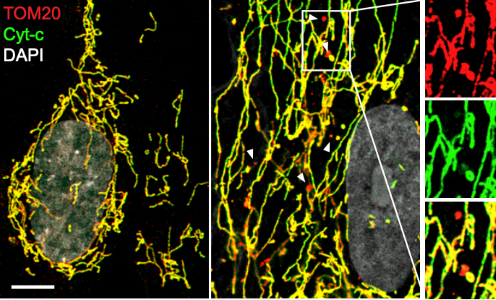Scientists Uncover Insights into the Aging Process
How we grow old gracefully – and whether we can do anything to slow down the process – has long been a fascination of humanity. However, despite continued research the answer to how we can successfully combat ageing still remains elusive.

Now, a new study led by scientists at the University of Glasgow in collaboration with the Mayo Clinic, USA, has unlocked some of the biological secrets behind the ageing process, offering a potential new target for treatments.
The study, which is published in the prestigious journal Nature, investigated why aged and damage cells cause inflammation, and how that process could be halted in order to promote healthy aging and even improve treatments for diseases such as cancer.
As we get older, our cells produce inflammatory proteins that further promote aging. Cancer treatments also cause this same inflammatory process by damaging cells, which can then prevent treatments from working well in patients.
The new research, which is co-led by Professor Stephen Tait and his team at the School of Cancer Sciences, reports a key inflammatory role for our cells’ energy-producing organelles, mitochondria.
The researchers found that in old cells – or following cancer therapy – mitochondria become leaky, releasing DNA that promotes inflammation and, as a result, ageing. The team then discovered that if they could prevent the mitochondria from becoming leaky, this in turn blocked inflammation and improved health during aging.
Their discovery suggests that targeting mitochondrial-driven inflammation may offer a new way to promote healthy aging, as well as improve the response to cancer therapies.
Professor Stephen Tait said: “Our work reveals a wholly unexpected link between mitochondria and the inflammatory effects of aged cells. We find that mitochondrial permeabilization, a process inextricably linked with cell death, promotes inflammation in aged and damaged cells. This opens up new areas of investigation, with the exciting potential to provide new treatments for aging and cancer”
The paper, ‘Apoptotic stress enables mtDNA release during senescence and drives the SASP’ is published in Nature. The work was funded by Cancer Research UK in the UK.

